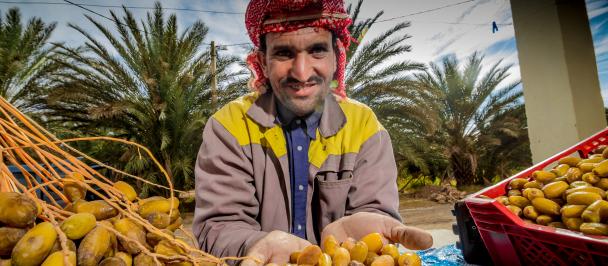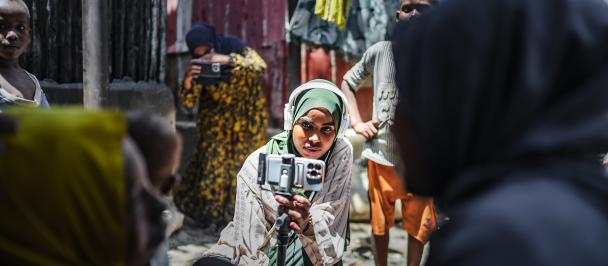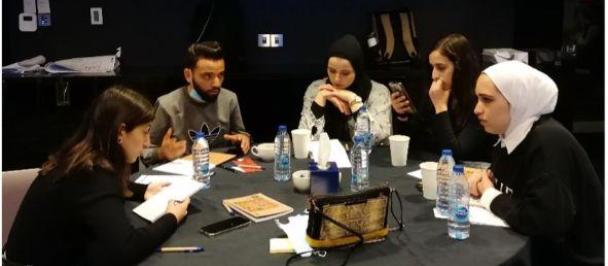Bilan Media – Somalia’s only all-women news team – uses its hard-won freedom of expression to highlight rights abuses and achievements
Somalia’s women journalists fight for human rights
May 3, 2023
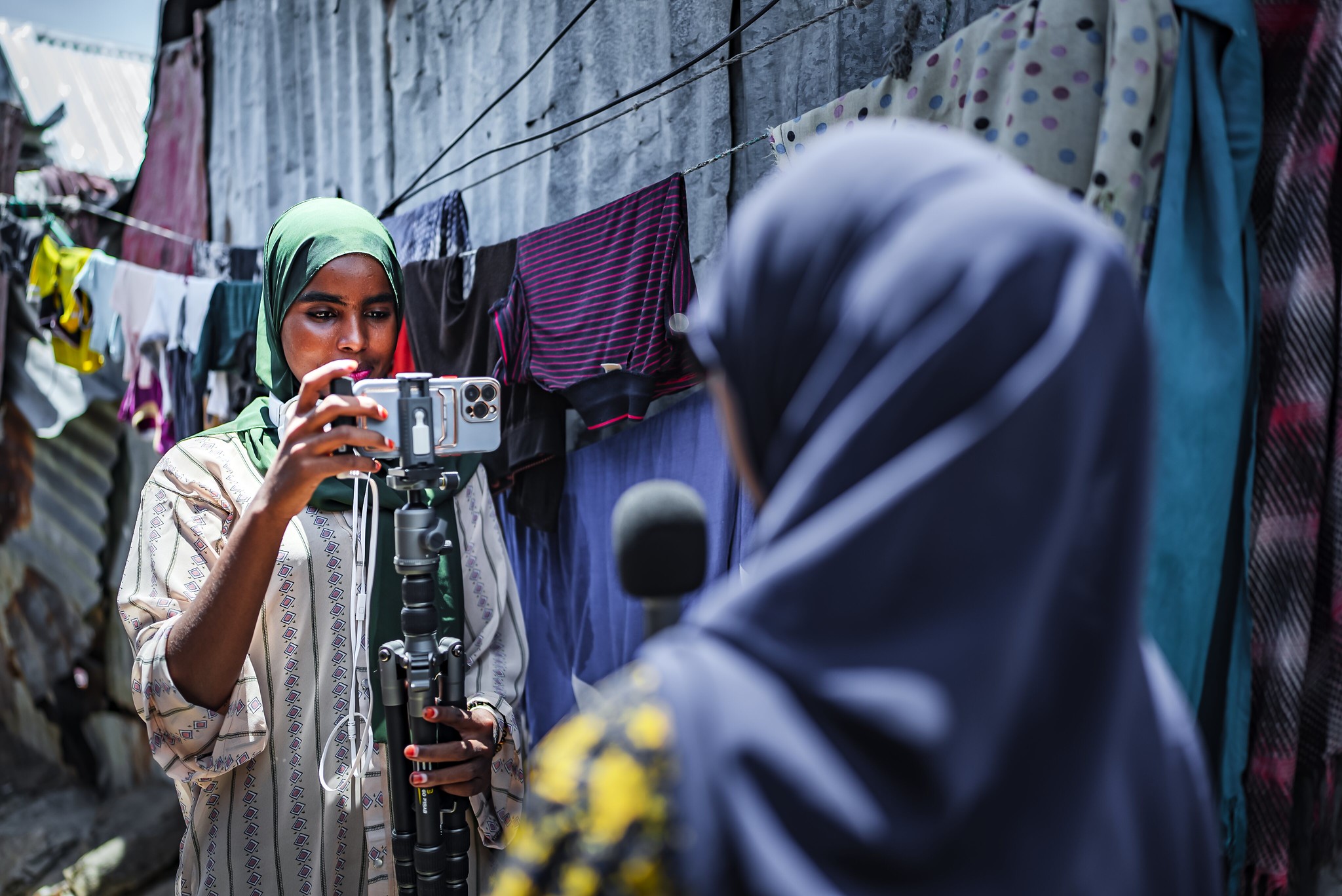
By Mary Harper
The fact that Somalia’s only all-women media house, Bilan, is still in business a year after it was created with support from UNDP is a human rights achievement in itself.
The fact that it is thriving, fearlessly reporting untold stories, is testament to the courage of these young female journalists who operate in the most dangerous media environment in Africa.
Bilan’s staff face hostility and danger on many levels. Their human rights are threatened on a daily basis.
“What a privilege to meet this brave team of journalists telling new stories and telling them so well.” Lyse Doucet, BBC Chief International Correspondent
When the teams’ youngest member, Shukri Mohamed Abdi, decided to work in the media, she had to overcome fierce resistance from her rural community, where the concept of being a journalist does not exist. She and her family have faced threats and physical attacks from groups opposed to her reporting.
The journalists face abuse from those who do not believe women should work in the media.
The attacks increased when Bilan’s chief editor, Fathi Mohamed Ahmed, became pregnant. People shouted at her as she went to work, telling her to go home where she belonged. Fathi refused to give up and has become something of a trailblazer for women’s rights in the workplace, regularly taken her baby to the office where the journalists team up to care for him.
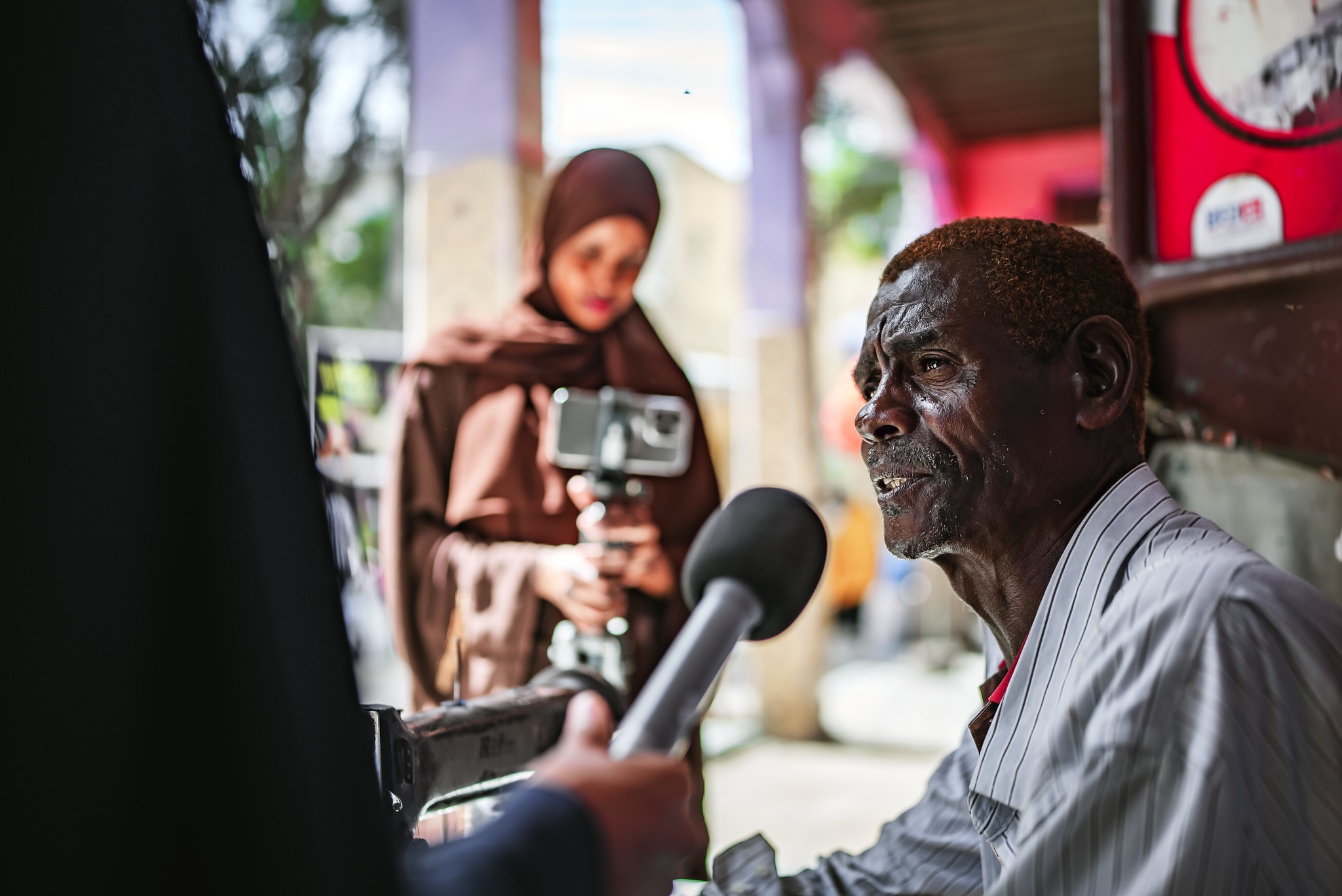
Somalia’s media environment remains repressive. A new 2020 law lifted some restrictions but failed to meet international standards of press freedom. For eight years in a row, Somalia has come top of the Committee to Protect Journalists' Global Impunity Index.
Journalists face the daily threat of targeted violence from groups and individuals opposed to their work. They get caught up in suicide attacks and hotel sieges. More than 50 media workers have been killed in Somalia since 2010.
“Bilan’s insights, storytelling ability and sheer existence have the potential to inform and inspire us all.” Anna Holligan, BBC foreign correspondent
Female journalists also have to deal with sexual harassment inside and outside the workplace. They are trolled relentlessly on social media.
The Bilan team says one of the best things about their all-women office is that it gives them a safe space. It gives them the freedom to pitch and deliver stories that might be shouted down in male-dominated media houses.
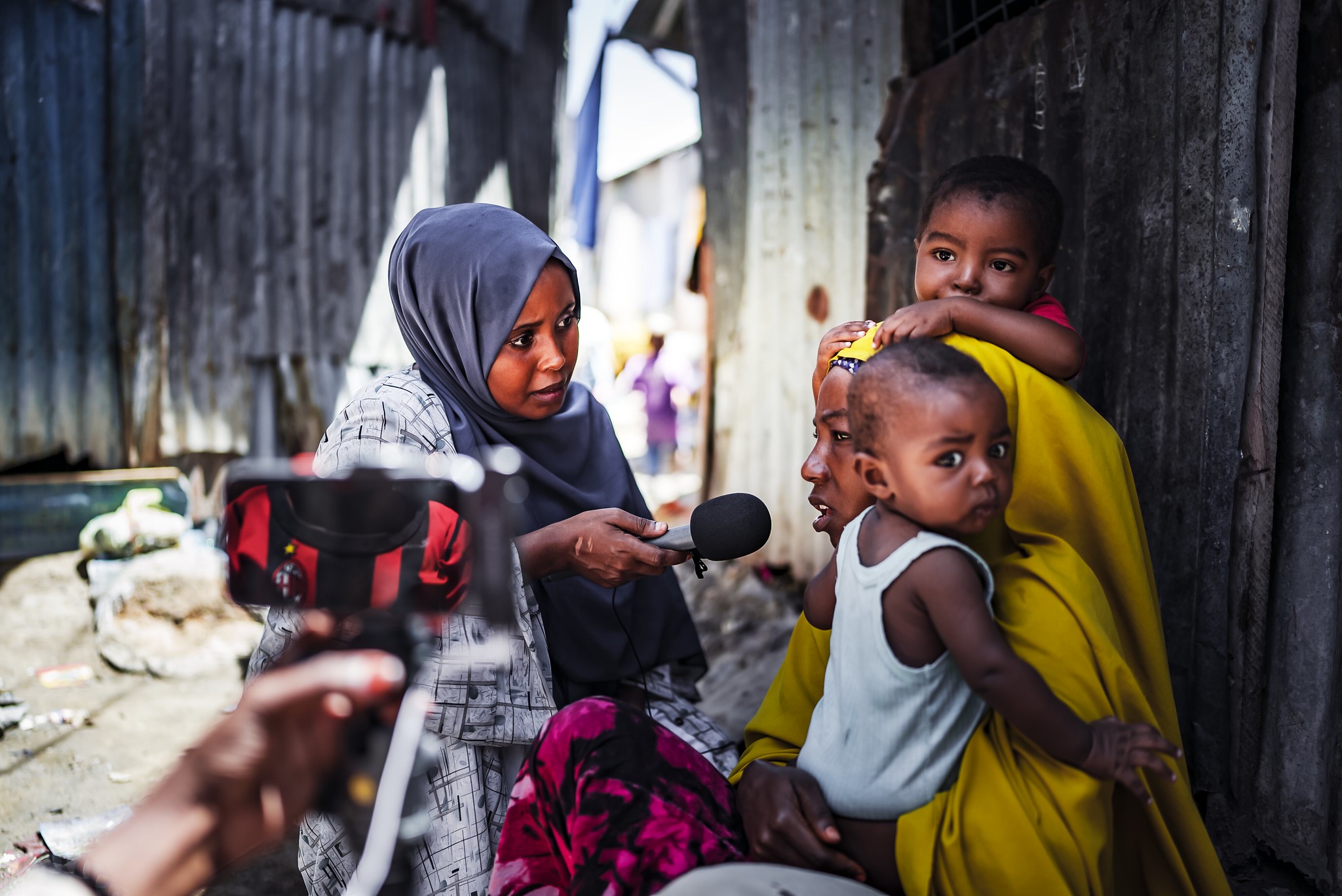
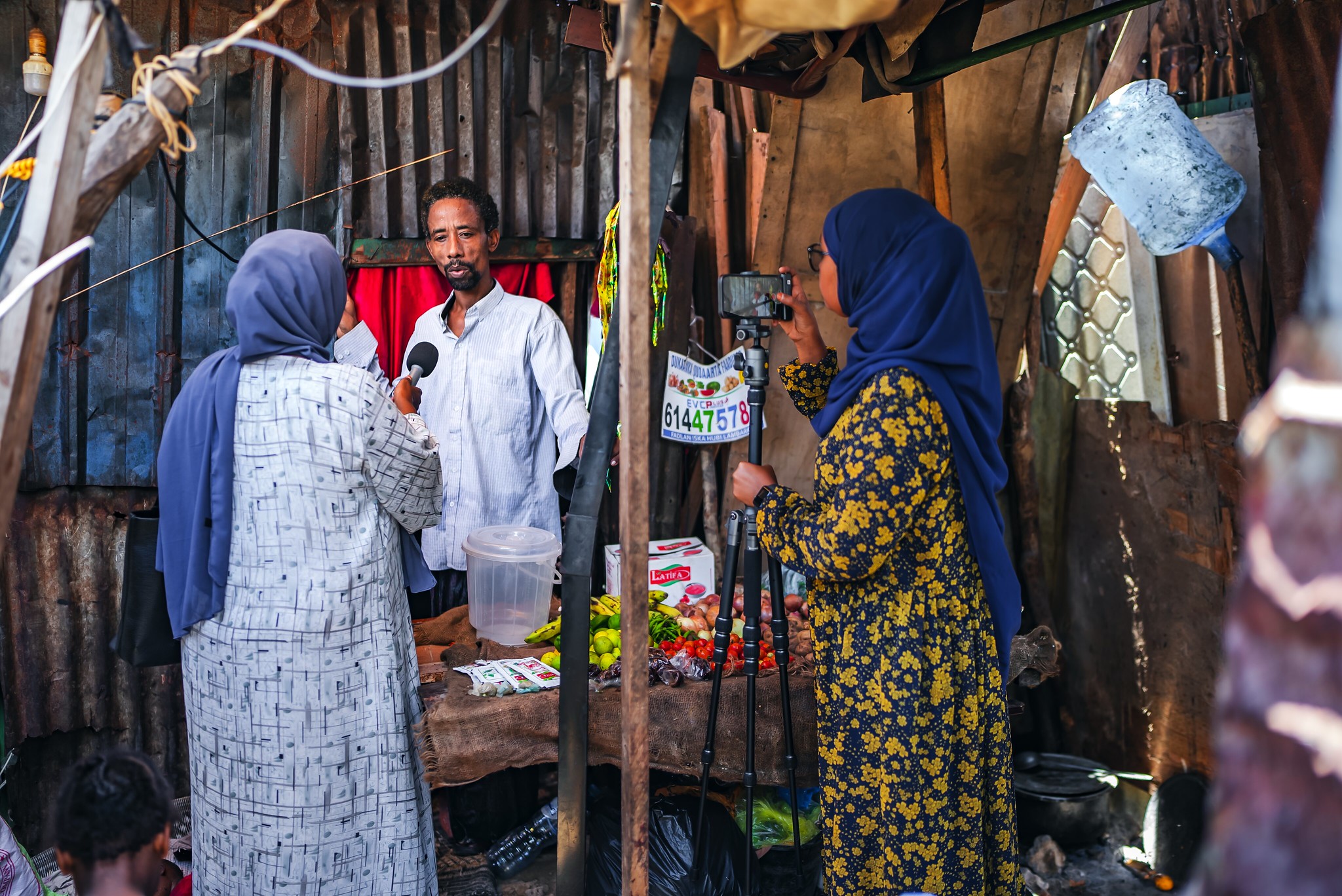
In addition to facing their own human rights challenges, Bilan has brought into the public eye important human rights stories that have not previously been told.
They reported on the sexual abuse of young orphan girls during the coronavirus pandemic and how some returned to their orphanage pregnant or with new-born babies when it reopened after the shutdown. Bilan has also highlighted the rights of disabled people in a story about a school for children living with autism where some of the teachers also have the condition.
Their reports for Somali and international media on the mistreatment of people living with HIV and their carers led to an intervention from the Ministry of Health and offers of help from across the world.
Bilan has explored the impacts of environmental threats, including Somalia’s worst drought in four decades, which scientists say was made 100 times more likely by climate change. They have covered the human rights of the displaced, including a report on how parents poison their children with detergent as a way of obtaining food for their hungry families.
“Bilan has proved that when Somali women journalists are given the power to make decisions and run their own business, they can compete at the highest levels – not just in Somalia but globally. In its first year, Bilan has had articles commissioned by the Guardian, the BBC, El Pais and Missing Perspectives. This is a record that would make journalists anywhere proud, not just those from a brand-new start up media venture in Mogadishu.” Sophie Kemkhadze, UNDP Somalia Deputy Resident Representative
It is not all doom and gloom. Many of Bilan’s stories are uplifting, celebrating women’s roles in business, politics, security and cultural life. They have reported on women volunteering to work at checkpoints in Hudur, South West Somalia, a cleaner who became a photographer, and a 10-year-old girl teaching traditional crafts to adult women in Mogadishu.
By freeing up a space for women to report on what they believe is important, Bilan has opened up a different Somalia to local and international audiences. Now that they have the power to express themselves freely, they have brought to the fore fundamental human rights issues in a country where such rights are often abused, forbidden or ignored.
Mary Harper is the Chief Technical Specialist for the Somali Women Media Project, which created Bilan in 2021 and continues to provide support.

 Locations
Locations